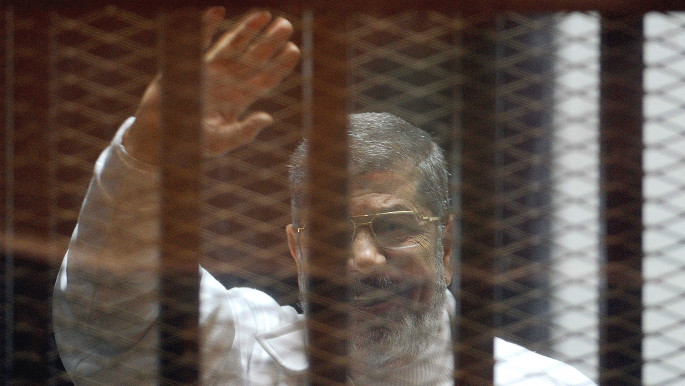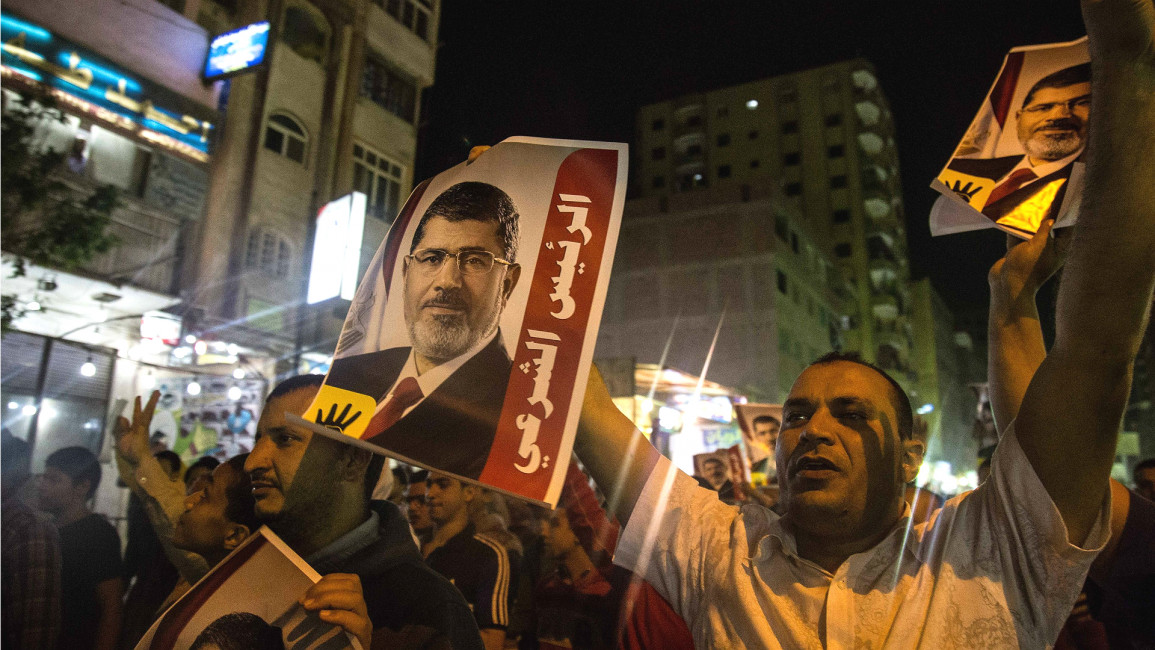Morsi verdict 'a travesty of justice'
Human rights group, Amnesty International has slammed the sentencing of former Egyptian leader Mohamed Morsi, stating that the verdict against the country's first freely elected president points to a "sham trial".
Mohamed Morsi was convicted of "inciting violence" and detaining and torturing opposition protesters during clashes between his supporters and opponents outside the Federal Palace in Cairo in December 2012.
In a statement published on Tuesday, the London-based organisation called the sentencing a "travesty of justice" adding that it "once again demonstrates that the Egyptian criminal justice system appears to be completely incapable of delivering fair trials for members or supporters of the former president's administration and the Muslim Brotherhood."
| The Egyptian criminal justice system appears to be completely incapable of delivering fair trials - Amnesty International |
The case was the latest in a series of mass trials on a range of charges against Morsi and other members of his Muslim Brotherhood, which Egypt's government has vowed to crush, branding it a terrorist organisation.
The Brotherhood went from decades as an underground organisation to vault to power after Egypt's 2011 popular uprising toppled longtime autocrat Hosni Mubarak.
The Brotherhood was the biggest winner in subsequent parliament elections, and Morsi - running as its candidate - became Egypt's first freely elected president in 2012.
But a year later, millions protested against Morsi's divisive rule, and then-army chief Abdel-Fattah el-Sissi led the military's July 2013 removal of Morsi.
Since then, a fierce crackdown has shattered the Brotherhood, killing hundreds of its supporters protesting for Morsi's return and arresting thousands more.
In its report 'Egypt: Questions and Answers: Trial of Mohamed Morsi' Amnesty stated that authorities had "violated Morsi’s right to a fair trial even before he had reached the courtroom."
Trial process was flawed and the evidence was "at best flimsy," Hassiba Hadj Sahraoui, Amnesty's deputy Middle East and North Africa director, said in a statement.
 |
|
| An Egyptian court Tuesday jailed Morsi to 20 years (AFP) |
Morsi's questioning took place without his lawyers present during his detention in an undisclosed location for four months following his ouster.
Amnesty said Morsi's legal team was only able to access case files days before the trial began.
It also documented several irregularities during the trial itself, adding that the Public Prosecution’s case focused entirely on abuses by his supporters, while ignoring violence by their opponents.
"This verdict shatters any remaining illusion of independence and impartiality in Egypt’s criminal justice system" Sahraoui added.
The head of Morsi's defence team, Mohammed el-Damaty, said the sentence is "way too much" for a "show of force" charge, while the son of the ousted leader, Osama Morsi, said the ruling was "nothing more than a politicised decision."
Damaty said the judiciary is trying to settle scores because of the numerous political clashes between Morsi and the judiciary during his presidency.
"They are taking revenge now, that is all," el-Damaty said. "Look at the judges' and state prosecutors' narrative and you will see them using terms like 'the deviant group' ... That speaks volumes about prejudices."
The verdict was also criticised by Turkey, whose government strongly supported Morsi's Muslim Brotherhood group.
In a statement issued Wednesday, the foreign ministry said that "arbitrary" trials in Egypt deepened doubts over the objectiveness of Morsi's trial and "reinforced concerns" over the future of democracy in the country.
It called on Cairo to meet the Egyptian people's "demands for democracy and the rule of law."
Many others also expressed their thoughts on the trial and verdict.
International Union for Muslim Scholars Sectary-General Dr Ali al-Qara Daghi tweeted, "Only in Egypt. Someone 'accused' of showing force is sentenced to 20-years in prison, but someone who 'uses' force and kills thousands of people is the head of state."
Former member of parliament, Azza al-Garf, said, "Twenty years in prison for the leader Mohamed Morsi, your sentence is under our shoes. Our revolution continues, the revolutionaries will not show you mercy."
Human rights activist Haitham Abu Khalil said, "President Morsi has been found guilty and the criminal Mubarak gets off free. Is this a revolution or occupation?"
Amnesty has called for Morsi to receive a fair re-trial in a civilian court in line with international standards, or to be released.
Most of the Brotherhood's top leadership already have received heavy prison sentences in other trials, as well as hundreds of death sentences laid down for senior figures and lower level supporters over acts of violence carried out during protests against Morsi's ouster.
The Brotherhood's top leader, Mohammed Badie, has received several death sentences in multiple cases - though they are subject to appeal. He appeared in court recently in the red jumpsuit worn by Egyptian prisoners on death row.
At the same time, Mubarak and members of his inner circle have largely been acquitted of charges related to the killing of protesters during the uprising against his rule. Charges against Mubarak over the killings were dropped earlier this year.
From his exile in Turkey, top Muslim Brotherhood figure Amr Darrag called the ruling "a sad and terrible day in Egyptian history."
"They want to pass a life sentence for democracy in Egypt," Darrag said.



